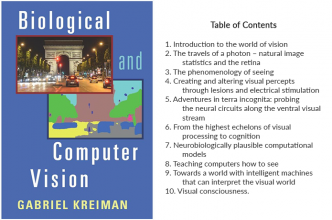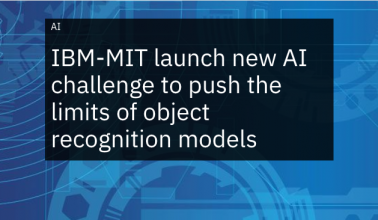Home Page Spotlights
The challenges of tackling this question are so daunting that few have tried. But Heather Kosakowski, a PhD candidate at MIT, is determined to find answers.
A lifelong interest in teaching brought CBMM's Mandana Sassanfar to MIT, where she has established programs to engage diverse students and forged partnerships with institutes across the country.
The Italian Scientists and Scholars in North America Foundation annually awards the Young Investigator Awards in various disciplines to outstanding, early-career Italian researchers working in the United States or Canada.
The correct answer is: squishiness! Since the early years of artificial intelligence, scientists have dreamed of creating computers that can “see” the world...
Simultaneous measurement of neural rhythms and spikes across five brain areas reveals how propofol induces unconsciousness. Read the eLife publication about this discovery with authors including CBMM Research Collaborator Prof. Emery N. Brown.
Please help us welcome our newest Investigator Guangyu Robert Yang - who will be arriving at the MIT campus in July - coming from the Center for Theoretical Neuroscience of Columbia University.
Computer models that mimic humans’ extraordinary hearing abilities could improve treatments for hearing loss. MIT neuroscientist Josh McDermott hopes to develop computational models that can perform sophisticated auditory tasks as well as the human brain.
Prof. Poggio will give a talk at the Bower Award for Neural Networks for Machine Learning symposium honoring Kunihiko Fukushima on April 28, 2021 at 9:00AM ET. Click to see full list of speakers and register for the webinar.
Memory permits the reuse of past cognitive computations. Work by CBMM's Dasgupta and Gershman have suggested that memory may be much more ubiquitous, permeating many other computational systems.
This new book introduces the neuroscientific study of neuronal computations in visual cortex alongside of the psychological understanding of visual cognition and the burgeoning field of biologically-inspired artificial intelligence.
CBMM's Director Tomaso Poggio has been selected as a panelist for the upcoming webinar series on March 24, 2021 hosted by the Italian Embassy and partnering with the National Science Foundation exploring artificial inteligence.
AI Week TLV, a five-day international event this February with the experts who are reshaping AI innovation, announced their speaker list including CBMM's Tomaso Poggio and Shimon Ullman.
IBM-MIT collaboration announces a challenge for the computer vision community to develop robust models for object recognition, demonstrating accurate predictions on ObjectNet images.
The Center for Brains, Minds and Machines is well-represented at the thirty-fourth Conference on Neural Information Processing Systems (NeurIPS 2020).
Figure 1: Typical double descent of the condition number (y axis) of a random data matrixdistributed asN(0,1): the condition number is worse whenn=d, better ifn > d(on the rightofn=d) and also better ifn < d(on the left ofn=d).















